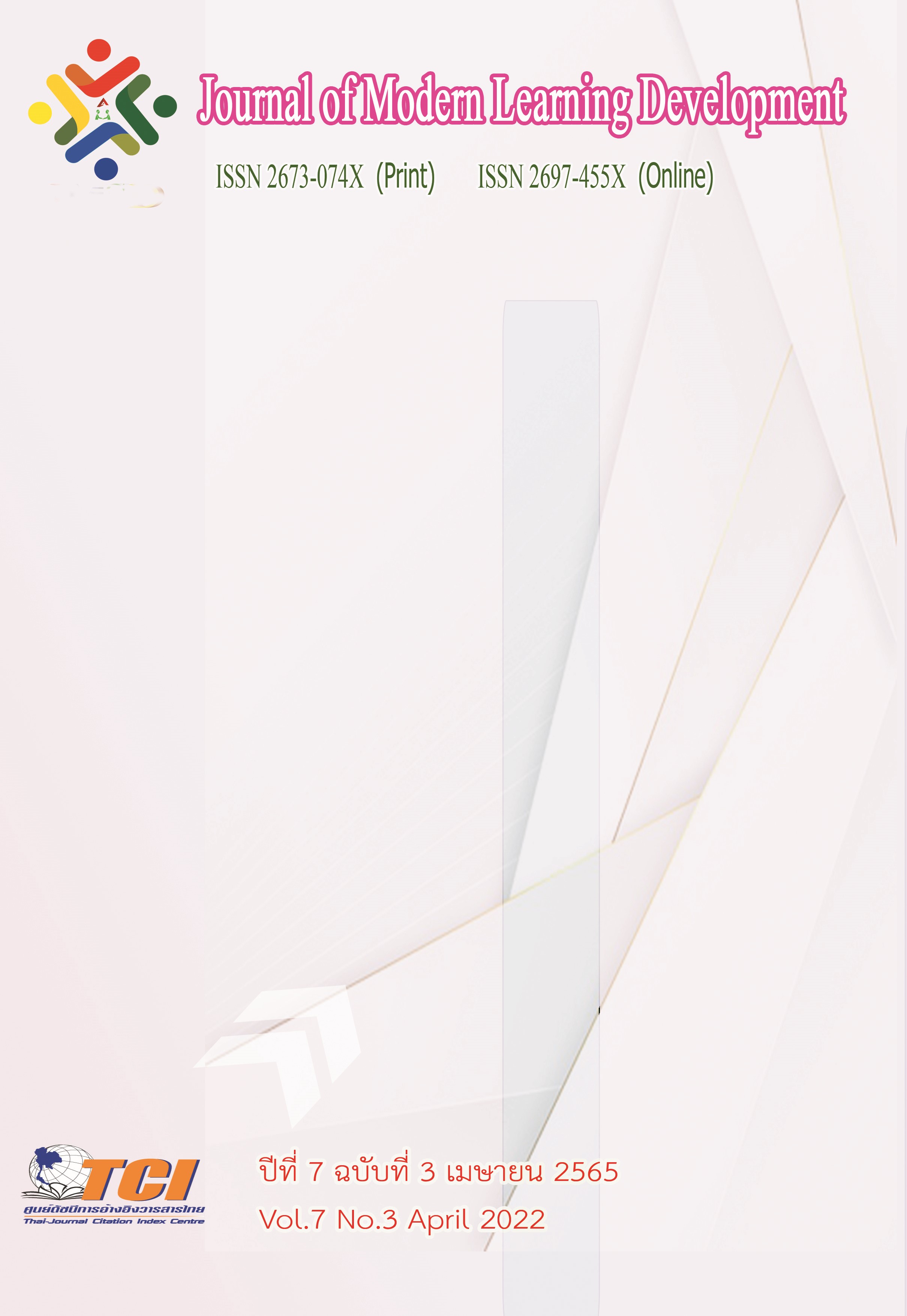The Guidelines for Academic Administration by the Four Iddhipāda Dhamma of school Administrators under the Office of Nakhon Ratchasima Primary Educational Service Area 6
Main Article Content
Abstract
The objectives of this research were: to study academic administration according to the Four Iddhipāda Dhammas of educational institute administrators under the Office of Nakhon Ratchasima Primary Educational Service Area 6; to propose guidelines for academic administration according to the Four Iddhipāda Dhammas of educational institute administrators. This study was carried out by means of the mixed method research methodology. The quantitative research used the questionnaire to collect the data from 306 participants and the obtained data were interpreted by the following statistics: Mean and Standard Deviation. For the qualitative research, 10 key informants were selected for the interviews. The obtained data were interpreted by Descriptive Analysis.
The research results were as follows:
1) Academic administration according to the Four Iddhipāda Dhammas of educational institute administrators: this practice was statistically rated at a high level in overall. All of the studied aspects were rated at a high level. The most rated aspect was seen in that of ‘Research to develop learning and teaching’, followed by ‘Educational evaluation and assessment’, ‘Institutional Curriculum Development’ and the least rated one was that of ‘Development of a learning process’.
2) The guidelines for academic administration according to the Four Iddhipāda Dhammas of educational institute administrators: for the institutional curriculum development, the curriculum should be developed in accordance with the context of the community to inspire and adhere to the principle of persistence in creating courses. The curriculum should be summarized and evaluated together. In terms of the development of a learning process, teachers should be encouraged to formulate learning management plans and promote the arrangement of the atmosphere in the classroom to build confidence and trust in performance. In terms of the educational evaluation and assessment, guidelines should be provided for teachers to use a variety of measurement tools and assessment methods to assess learners based on actual conditions covered by learning indicators and standards. Teachers should be encouraged to use measurement and evaluation results to improve attentive learning management. In terms of research to develop learning and teaching, research development should be encouraged to create guidelines for solving teaching and learning management problems to build confidence and inspire the development of research results. Teachers should be encouraged to study research and bring research results to solve problems, develop teaching and learning, continuously monitor and evaluate the research result implementation
Article Details
References
กระทรวงศึกษาธิการ. (2553). แนวทางการจัดการเรียนรู้ตามหลักสูตรแกนกลางการศึกษาขั้นพื้นฐานพุทธศักราช 2551. กรุงเทพมหานคร: โรงพิมพ์ชุมนุมสหกรณ์การเกษตรแห่งประเทศไทย.
วิจารณ์ พานิช. (2556). ครูเพื่อศิษย์สร้างห้องเรียนกลับทาง. กรุงเทพมหานคร: บริษัท เอส.อาร์.พริ้นติ้ง แมสโปรดักส์จำกัด.
สำนักงานเขตพื้นที่การศึกษาประถมศึกษานครราชสีมา เขต 6. (2553). แผนพัฒนาการศึกษาขั้นพื้นฐานนครราชสีมา: สำนักงานเขตพื้นที่การศึกษานครราชสีมา เขต 6.
สำนักงานคณะกรรมการการศึกษาแห่งชาติ. (2553). พระราชบัญญัติการศึกษาแห่งชาติ พ.ศ. 2542. กรุงเทพมหานคร: เดอะบุคส์.
สำนักงานปลัดกระทรวงศึกษาธิการกระทรวงศึกษาธิการ. (2560). แผนพัฒนาเศรษฐกิจและสังคมแห่งชาติ กรุงเทพมหานคร: มปท.
สำนักงานเลขาธิการสภาการศึกษา. (2560). แผนการศึกษาแห่งชาติ. กรุงเทพมหานคร: พริกหวานกราฟิก.
ยุพิน ขุนทอง. (2560). การบริหารงานวิชาการสู่ความเป็นเลิศตามหลักอิทธิบาท 4 ในสถานศึกษาขั้นพื้นฐาน สังกัดสานักงานเขตพื้นที่การศึกษามัธยมศึกษาเขต 25. ปริญญาพุทธศาสตรมหาบัณฑิต สาขาวิชาการบริหารการศึกษา. บัณฑิตวิทยาลัย: มหาวิทยาลัยมหาจุฬาลงกรณราชวิทยาลัย.
พระปลัดธนา ชินทตฺโต (ชินทนาม). (2560). การประยุกต์ใช้หลักอิทธิบาท 4 ในการบริหารสถานศึกษาขั้นพื้นฐาน สังกัดสำนักงานเขตพื้นที่การศึกษาประถมศึกษาบึงกาฬ. ปริญญาพุทธศาสตรมหาบัณฑิต สาขาวิชาการบริหารการศึกษา. บัณฑิตวิทยาลัย: มหาวิทยาลัยมหาจุฬาลงกรณราชวิทยาลัย.
พระมหาสุเนตร อภิปุญฺโญ. (2559). การบริหารงานวิชาการตามหลักอิทธิบาท 4 โรงเรียนประถมศึกษา อำเภอพระสมุทรเจดีย์ จังหวัดสมุทรปราการ. วิทยานิพนธ์มหาบัณฑิต มหาวิทยาลัยมหาจุฬาลงกรณราชวิทยาลัย: อยุธยา.
พระมหาวิทวัฒน์ วิวฑฺฒนเมธี (จันทร์เต็ม). (2561). การบริหารตามหลักอิทธิบาท 4 ในสถานศึกษาขั้นพื้นฐาน สังกัดสำนักงานเขตพื้นที่การศึกษาประถมศึกษากาฬสินธุ์ เขต 2. ปริญญาพุทธศาสตรมหาบัณฑิต สาขาวิชาพุทธบริหารการศึกษา. บัณฑิตวิทยาลัย: มหาวิทยาลัยมหาจุฬาลงกรณราชวิทยาลัย.
พระสุทธิพงษ์ สุเมธโส (งอกลาภ). (2561). การบริหารสถานศึกษายุค 4.0 ตามหลักอิทธิบาท 4 สังกัดสำนักงานเขตพื้นที่การศึกษามัธยมศึกษาเขต 30. ปริญญาพุทธศาสตรมหาบัณฑิต สาขาวิชาพุทธบริหารการศึกษา. บัณฑิตวิทยาลัย: มหาวิทยาลัยมหาจุฬาลงกรณราชวิทยาลัย.


